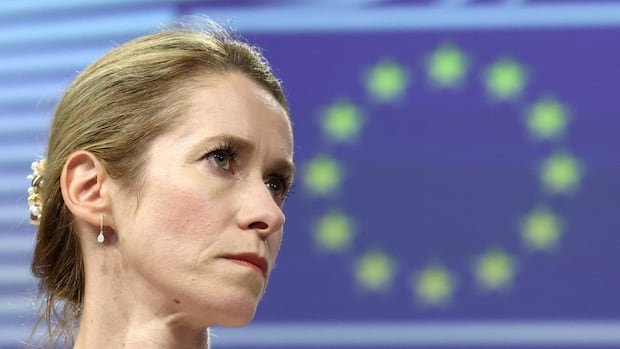Estonia has called in a Russian diplomat to register a complaint following an incident where three Russian fighter jets breached Estonian airspace without authorization and remained there for approximately 12 minutes on Friday, as stated by the Estonian Foreign Ministry.
This violation occurred shortly after NATO aircraft intercepted Russian drones over Poland, raising concerns about the potential spillover of the conflict in Ukraine. Foreign Minister Margus Tsahkna expressed dismay over Russia’s repeated violations of Estonian airspace this year, emphasizing that the recent incident involving three fighter jets was especially audacious.
The Russian government has refrained from providing an immediate response to the situation. The breach of Poland’s airspace marks a significant event since the inception of the war in Ukraine, with other NATO member countries reporting similar airspace violations and drone-related incidents.
The European Union’s foreign policy chief, Kaja Kallas, condemned the incident as a highly perilous provocation that further heightens tensions in the region. The Russian MiG-31 fighters infiltrated Estonian airspace near Vaindloo Island in the Gulf of Finland, operating without flight plans, active transponders, or communication with Estonian air traffic control.
Italian Air Force F-35 fighter jets, part of the NATO Baltic Air Policing Mission, promptly responded to the breach. Foreign Minister Tsahkna emphasized the need for increased political and economic pressure on Russia to counter its escalating aggressiveness.
Furthermore, the European Union announced plans to accelerate the phase-out of Russian LNG imports as part of new sanctions against Moscow. This decision aims to curtail Russia’s revenues from fossil fuels, with the proposal also targeting Russia’s shadow tanker fleet and cryptocurrency activities.
The proposal is expected to close customs loopholes used by Russia for military imports and target entities supporting Russia’s war efforts. Additionally, the sanctions may lead EU countries to seek alternative LNG sources, potentially increasing energy dependence on the United States amid evolving trade dynamics.
Despite these developments, Kremlin spokesperson Dmitry Peskov indicated that any EU measures to expedite the reduction of Russian energy imports would not impact Russia’s stance or operations.

